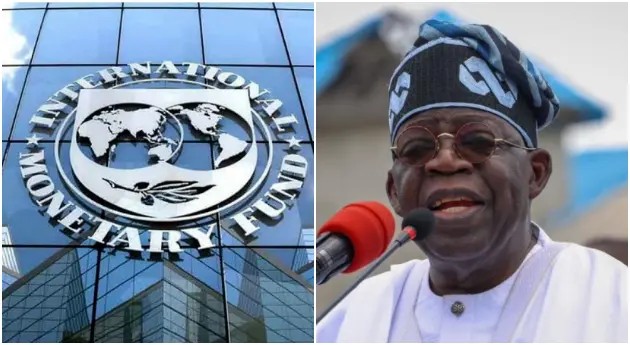The International Monetary Fund (IMF) has said that the removal of fuel subsidy and spending of subsidy savings would take time to impact on the people.
Deputy Director in the IMF’s Fiscal Affairs Department, Era Dabla-Norris said this on Wednesday at the Fiscal Monitor session of the ongoing IMF/World Bank Annual Meetings in Washington DC.
Dabla-Norris said that petrol subsidy removal impacts people’s income immediately but there are tangible benefits like energy efficiency, but the ability to reallocate fiscal savings, takes time to materialise.
The IMF Deputy Director called on the Federal Government to think about a comprehensive strategy on ways to ensure that petrol subsidy removal impacts positively on the people.
Dabla-Norris said that Nigeria can raise more revenue through taxes, and such funds will serve as buffer to support economic stability.
She said: “Countries that put in place compensatory mechanisms like cash transfers or more targeted transfers, for those people who need it most, where the public doesn’t trust the government, increasing support for social programmes makes it very tangible to the public.”
Also speaking, IMF Director of the Fiscal Affairs Department at the IMF, Vitor Gaspar said the global fiscal outlook has deteriorated since the October 2024 Fiscal Monitor.
He explained that major tariffs announcements, heightened uncertainty, financial market volatility, and diminishing foreign aid are adversely affecting public debts and deficits.
According to him, the global public debt is now projected to reach nearly 100 percent of GDP by the end of the decade, surpassing the pandemic peak, with gross financing needs set to rise significantly.
“Sudden and disruptive tightening of financing conditions present a clear and present danger. Consequently, fiscal policy now faces a more pronounced trade-off among four key objectives: reducing debt, building and expanding buffers to address future shocks, meeting urgent spending needs, and enhancing growth prospects,” he said.
The IMF said, countries with limited fiscal space should prioritize public spending within their planned budgets and allow automatic stabilizers to operate fully.
The Fund said higher tariffs generally lead to a reduction in imports, with the extent of this decline depending on the price elasticity of demand at the bilateral product-country level.
The Fund said, “In addition, rising future debt could add further pressure on long-term interest rates and government financing costs. New analysis confirms that higher expected future debt and deficits could lead to higher long-term interest rates.”
It explained that emerging market and developing economies should reduce spending and increase revenues by reforming tax systems, broadening tax bases, and improving revenue administration.
The Fund said, “They should rationalize public wage bills while safeguarding public investment and upgrading social safety nets.
Reforming state-owned enterprises is essential to enhance resource allocation, foster sector growth, and mitigate fiscal risks.
“Countries with low tax-to-GDP ratios must reassess existing tax rates and thresholds, particularly for the value-added tax (VAT) and personal income taxes. Others might consider increasing VAT rates, reintroducing goods and services taxes, and rationalizing tax expenditures.”
It highlighted that in cases of significant financial instability, fiscal policy can play a crucial role in supporting central banks and financial supervisors through tools such as direct lending, guarantees, and equity injections.
“Enhancing fiscal and debt governance, along with debt transparency, is essential to improve efficiency and mitigate debt risks.
Countries must proactively identify and manage contingent liabilities, particularly those related to state-owned enterprises,” the Fund said.
The IMF said, Governments should provide clear, detailed, and timely information about debt, including creditor composition and exposure to risks―such as interest rate and exchange rate risks.
It noted that this transparency, which would benefit from sound legal underpinnings, fosters scrutiny and accountability, and reduces dependence on nontraditional debt instruments.
The IMF stated, “Targeted tax incentives can stimulate private investment and productivity through research and development.Strengthening spending efficiency – especially in health, education, and infrastructure investment – can raise an economy’s production capacity.
“Timely and orderly debt restructuring alongside fiscal adjustments is essential for countries facing debt distress. Recent initiatives by the international community have streamlined sovereign debt restructuring and reduced timelines”.
Do you want to share a story with us? Do you want to advertise with us? Do you need publicity for a product, service, or event? Contact us on WhatsApp +2348183319097 Email: platformtimes@gmail.com
We are committed to impactful investigative journalism for human interest and social justice. Your donation will help us tell more stories. Kindly donate any amount HERE




